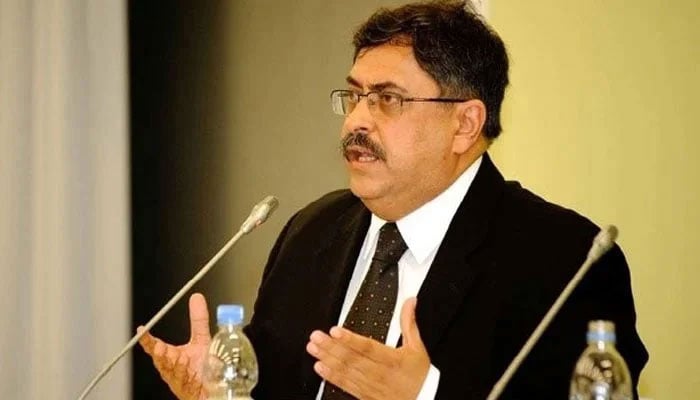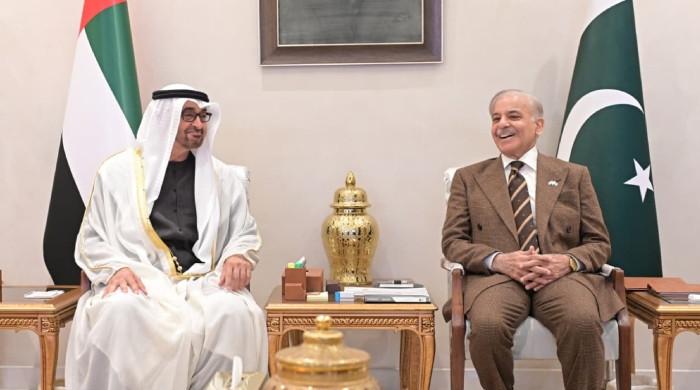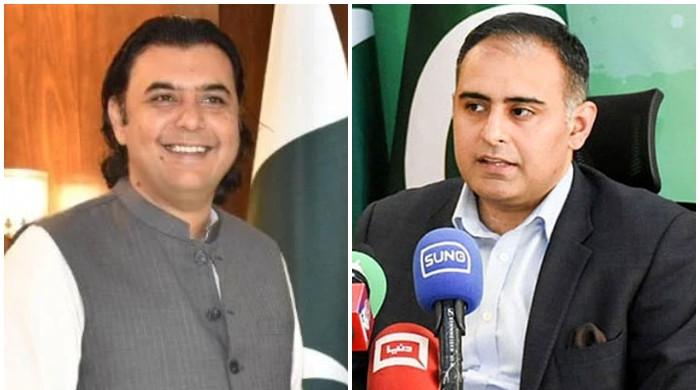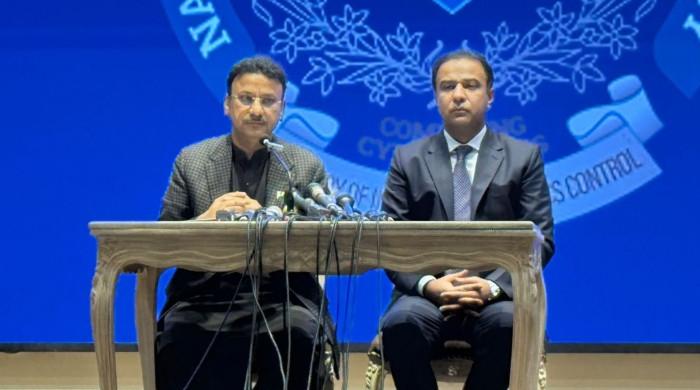77 years of judicial history not a matter of pride: Justice Athar Minallah
Justice Minallah urges supremacy of Constitution, accountability, and rule of law
September 04, 2025

- Judge hails Karachi Bar for defending constitutional supremacy.
- Justice Minallah praises judges for refusing oath under PCO.
- Judge says sovereignty belongs to people, not institutions.
KARACHI: Supreme Court Justice Athar Minallah has said that the 77-year judicial history of Pakistan is not a source of pride for him, stressing the need for the supremacy of the Constitution and accountability to the people.
Speaking at a seminar at the Karachi Bar Association, Justice Minallah said the Karachi Bar holds the highest honour in the country. He added that anyone who still doubts the supremacy of the Constitution should visit the Karachi Bar. “The Karachi Bar has done a great service to us all,” he remarked.
Justice Minallah recalled that in the country’s 77 years, the system has developed in a way that people hesitate to name five judges.
He highlighted the bravery of those judges who refused to take oath under the Provisional Constitutional Order (PCO), most of whom belonged to Sindh, including some who were in line to become future chief justices but chose to uphold their oath.
He mentioned historic names such as Justice Bachal, Justice Vilani, Justice Constantine and Justice Bakhsh, adding that these judges preferred principles over personal gains.
The judge referred to the sacrifices of 90 lawyers during the lawyers’ movement, praising leaders like Munir A. Malik and others who stood for the supremacy of law and the Constitution. He said their sacrifices remain a debt that cannot be repaid.
Justice Minallah lamented that Pakistan has lacked constitutional governance throughout its history. “As a judge, if I am not ensuring constitutional rule, then I am violating my oath,” he stressed.
He added that his oath binds him to decide cases without fear and to defend the Constitution above all, making him answerable to both the people and God.
Drawing comparisons, he said Britain has had no written constitution for over a century, yet the rule of law prevails there. In contrast, he regretted, Pakistan’s history and even its curriculum have been distorted. “A society that abandons truth faces destruction,” he warned.
Justice Minallah recalled that when Pakistan was being formed, a constitution was being drafted for both wings of the country by a duly elected assembly, not created through manipulation.
However, when the constitution was ready, the assembly was dissolved by military and civil authorities, laying the foundation for Pakistan’s eventual division.
He said Bengalis did not wish to separate but were branded a burden by rulers as early as 1962. Referring to Justice Munir’s writings, he said they must be read to understand how constitutional derailments harmed the nation.
Highlighting Karachi Bar’s historical role, he noted its stand with Fatima Jinnah against dictatorship. He expressed dismay over how judges allowed themselves to be influenced, recalling General Zia-ul-Haq’s denial of judicial pressure during Bhutto’s trial, despite judges later admitting that pressure led to Bhutto’s execution.
“Even then, three judges opposed it, two of them from here – Justice Haleem and Justice Turab Patel,” he said.
Justice Minallah stressed that sovereignty lies with the people. “The foundation of the Constitution is that the right to rule belongs to the people,” he said, adding that no institution should indulge in political engineering and that representatives must be elected transparently.
“Unfortunately, this has remained only a dream for us,” he said. “Wherever there is dictatorship, elections are still held, but they are never truly free.”









